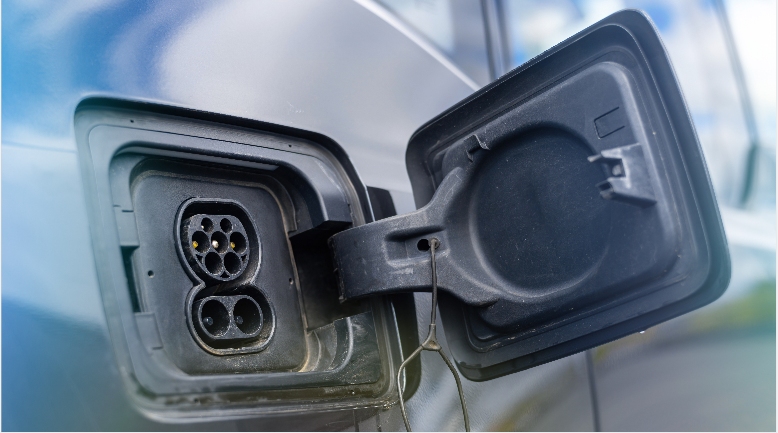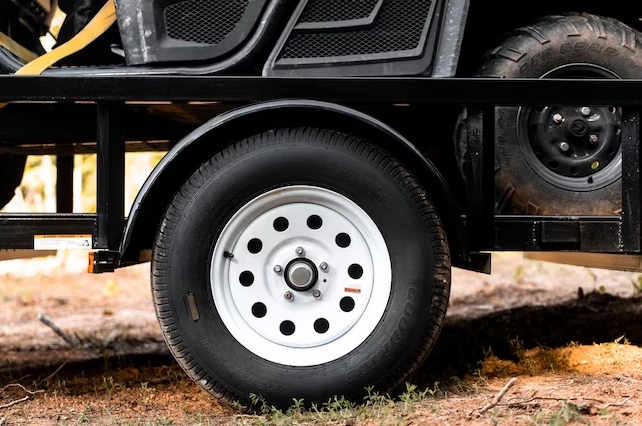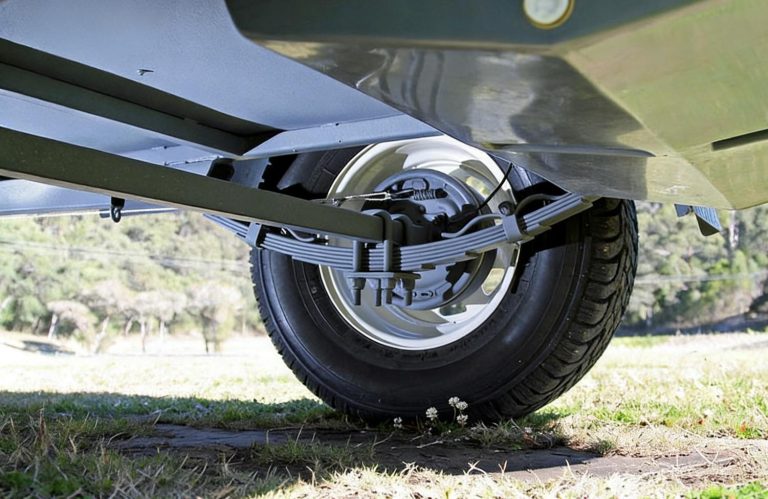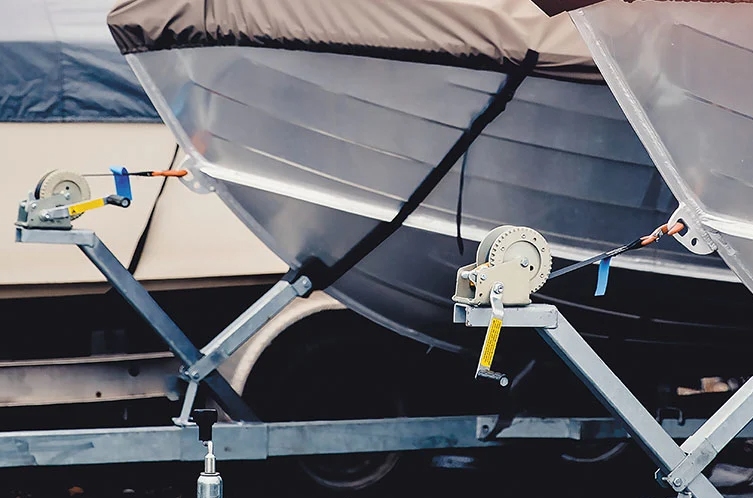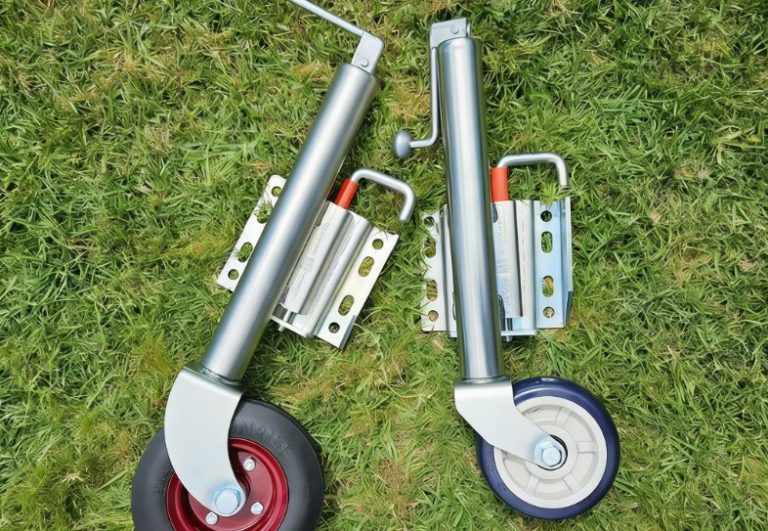While towing a trailer, your electrical plug is more than a plug—it’s the lifeline that supplies electricity for your lights, brakes, and safety features. The typical trailer owner has no idea if they should use a 4-pin, 5-pin, or 7-pin trailer plug socket. What follows is an explanation of the differences, selecting the correct one for your vehicle and trailer, and why a 7-pin trailer plug socket is the intelligent and heavy-duty option.
Why Use a 7-Pin Trailer Plug Socket?
A 7-pin trailer plug socket is utilized for medium-duty to heavy-duty trailers that require more than simple lights. The 7-pin connector, which is different from 4-pin or 5-pin systems, supports:
- Electric trailer brakes
- Auxiliary power (e.g., to charge an RV battery)
- Reverse lights
- Standard lighting (tail, turn, brake)
This is the most conforming and safest choice for RVs, campers, horse floats, boat trailers, and car haulers.
4-Pin vs 5-Pin vs 7-Pin Trailer Plug Sockets
| Tipo de conector | Functions Supported | Typical Use Case | Limitation |
| 4-Pin | Tail lights, brake lights, left & right turn signals | Pequeños remolques de servicios públicos | No brakes, no reverse light, no power supply |
| 5-Pin | Same as 4-pin + reverse light | Some boat trailers | No electric brake, no auxiliary power |
| 7-Pin | All of the above + electric brakes + auxiliary power | RVs, heavy-duty trailers, livestock haulers | Requires matching vehicle socket |
Tips: If your trailer has electric brakes, an onboard battery, or reverse lights, a 7-pin setup is required.
Key Features to Consider when Selecting a Long-Lasting Socket
Weather resistance and corrosion resistance
Weather sealing is important when choosing a 7-pin trailer plug socket. Weather conditions such as rain, snow, dust, or road salt can degrade electrical contacts. Weathering is kept to a minimum in our 7-way blade socket and 7P flat socket products, constructed with heavy-duty PVC material, offering high water and corrosion protection.
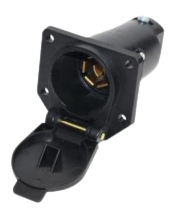
Material strength and construction quality
Long-term reliability is ensured by a high-grade material. Material is PVC, and Voltage is 12v — suitable for all of our 7-pin models. The heavy-duty build withstands warping or cracking from extremely low or extremely high temperatures, or from mechanical shock when coupling and uncoupling.
Secure connection and locking design
Poor connections can result in loss of signals or, worse still, accidents. Our sockets have neat-fitting terminals to make sure that the tow vehicle and trailer wiring harnesses make good contact. This helps prevent vibration-induced disconnections during towing.
Replacing the Socket with Your Towing Needs
Trailers requiring 7-pin sockets
Most mid-to-heavy-duty trailers are best serviced by a 7-pin arrangement. Some of them include:
- Remolques de botes
- Box/cage trailers
- Transportista de autos
- RVs or campers
- Livestock haulers
These sorts of categories tend to require additional functions like electric brakes or reversing lights—functions very well served by our GO Trailer 7-pin connectors.
Compatibility with your towing vehicle
Before selecting your socket style, ensure your tow car is equipped with a corresponding plug setup (flat or round). Our product line has both 7P flat plugs and 7-way blade plugs, making it easy to coordinate with the design of your car. Universal voltage compatibility ensures trouble-free interoperability with the vast majority of standard vehicle systems.
Electrical operations offered by the socket
A 7-pin standard setup supports:
- Left turn signal
- Right turn signal
- Tail/running lights
- Brake lights
- Reverse lights
- Electric brakes
- Auxiliary power (e.g., battery charging)
Selecting our heavy-duty 7-way blade plug guarantees all of these functions to be properly transferred between your tow vehicle and trailer.
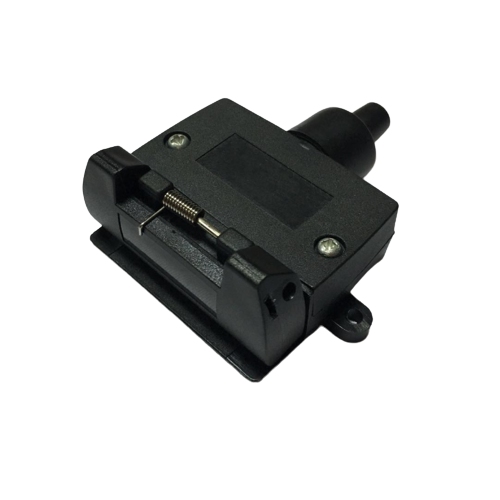
7-Pin Trailer Plug Socket Installation Guide
Herramientas necesarias
Wire stripper, crimper, screwdrivers, electrical tape/heat shrink, and multimeter.
Steps
- Disconnect the battery on your vehicle.
- Mount the socket in close proximity to the hitch receiver.
- Strip and wire based on the wiring diagram.
- Crimp or solder for secure attachment.
- Electrical tape or heat shrink insulation.
- Test each function using a trailer or multimeter.
Tip: Apply dielectric grease to terminal contacts to extend socket life.
Long-Term Performance Maintenance Tips
Periodic maintenance checkup and cleaning
Clean your trailer plug socket every few months—or before any long trip—for wear, rust, or loose connections. Use contact cleaner spray if necessary.
Protecting the socket from environmental damage
Cover with a rubber during storage to prevent dirt and water entry—particularly important if used in coastal areas where there is greater exposure to salt. At the same time, our company also owns a skilled electrophoresis workshop and spray workshop that have received environmental assessment certification. In short, our products are built with coatings that offer another layer of protection from environmental wear and tear.
When to replace your trailer plug socket
Replace immediately if:
- Pins are pitted or corroded.
- Plastic casing cracks.
- Reconnecting frequently is necessary on the road.
- Any light use occasionally malfunctions with good wiring.
Benefits of Using GO Trailer Products
We at Remolque offer high-quality trailer connectors, which are CE-approved.
- Quality Tested– Every unit is dispatched after testing.
- Long-Lasting Materials– Weather-resistant PVC for increased lifespan.
- World Supply– Gives customers worldwide the confidence.
- Free Samples– Try before you buy for compatibility promise.
FAQ
Q: Are GO Trailer’s 7-pin sockets sufficient for outdoor usage?
A: Yes, they’re built from heavy-duty PVC materials that are waterproof and corrosion-resistant—ideal for outdoor use.
Q: What is the difference between a 4-pin and a 7-pin trailer plug?
A: Function is the major difference. A 4-pin does little lighting (stop, tail, turn). A 7-pin offers critical functions for big trailers: electric brake control, auxiliary power to keep a charged battery, and backup lights.
Q: Can one replace a 7-pin socket with a 4-pin?
A: Completely safe and not at all out of the ordinary to have done. You just fit an adapter plug that plugs into your 7-pin vehicle socket and has a 4-pin flat outlet. This then allows you to tow a small trailer without needing to do anything permanent.
Q: How can I tell if my vehicle requires a 7-pin socket?
A: You’ll need a 7-pin socket if you’ll be towing a trailer with electric brakes (for trailers over 1,500 lbs) or one that has a battery that needs to be charged during transport (like an RV). Check your vehicle owner’s manual or look at its back bumper for which connector is already present.


